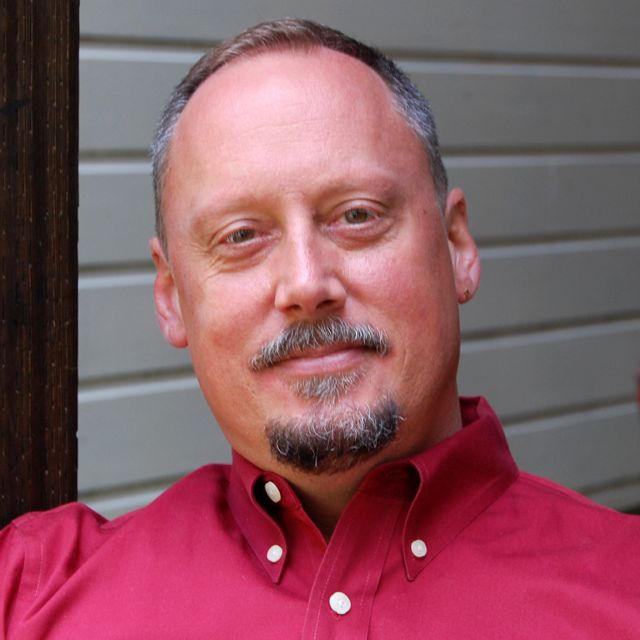

Chosen Ties: Unraveling the Intricacies of Kink and Polyamorous Family Systems
The intersection between kink/BDSM sexualities and consensual non-monogamies is a large overlap, with approximately half of kinky folk engaging in some form of CNM. In addition, there are kink/BDSM polycules, or “leather families” or “households”, that have been an important part of the cultural history of kink and BDSM. What are the types of issues that might come up clinically, given this context for kinky folk? The workshop will provide an overview of some issues that are likely to come up at the intersection of kink and polyamorous family systems, and present some ideas of how relationship therapy might adapt to this particular type of client(s).
Beginner/Intermediate: The intended audience for this workshop includes mental health providers and medical providers who have some basic knowledge of kink/BDSM behaviors. As such, this is intended as an intermediate level training. Community members are welcome and may be part of the audience.

By the end of this training, participants will be able to...
-
outline the range of families created by polyamorous kinky folk
-
describe how relationship therapy can adapt to working with leather families or households
-
explain at least two clinical issues likely to come up when working with polyamorous kinky clients

Richard A. Sprott, PhD
Anna M. Randall, LCSW, MPH, DHS

AASECT CE credit and APA CE credit
AASECT Credit
This program meets the requirements of the American Association of Sexuality Educators, Counselors and Therapists (AASECT) and is approved for 3 CE credits. These CE credits may be applied toward AASECT certification and renewal of certification. Both ticket levels will receive AASECT CE credit.
AASECT Certification Disclaimer
Please note, AASECT Certification is not automatic. In all cases, the Certification Committee determines whether AASECT certification is awarded.
APA Credit
The complete event of two hours is eligible for 3 CE units. The Alternative Sexualities Health Research Alliance (TASHRA) is the organization that will sponsor the CE credit. TASHRA is approved by the American Psychological Association to sponsor continuing education for psychologists. TASHRA maintains responsibility for this program and its content.
Only the $112.50 level ticket will receive APA CE credit.
Many states honor APA CE credits for other licensed health professionals, please check with your own state licensing board.

Scholarships
Scholarship covers 50% of registration
The application asks:
Why do you want a scholarship for this training?
Do you currently work with kinky clients/patients?
Do you intend to specialize in serving the kink community?
Clinical Training Team approves 3-6 scholarships per training depending on level of registration and the types of tickets being requested. The more Non/pre-licensed professional tickets requested, the more total scholarships can be provided.
Deadline for applying is one week before training
Only one scholarship per calendar year per participant
Scholarship prices are sent as invoices via PayPal, not as discount codes on the website.
Group Rates:
Tiered
minimum group size: 4
Group size: 4-9 10% off registration price
Group size: 10 or more, 15% off registration price
A group liaison sends a list of names and email addresses of group members to [email protected]
An individual discounted invoice for registering for the event is sent to each group member listed. Registration and payment can be made that way, rather than registering through the website here.

TASHRA Grievance and Complaint Policy
TASHRA is committed to conducting all activities in compliance with the American Psychological Association’s (APA) Ethical Principles of Psychologists and the American Association of Sexuality Educators, Counselors and Therapists (AASECT) Code of Conduct. TASHRA will adhere to all legal and ethical responsibilities to be nondiscriminatory in promotional activities, program content, and the treatment of program participants. Monitoring and assessment of these standards will be the responsibility of the TASHRA Clinical Training Team ([email protected]).
While TASHRA makes every attempt to assure fair treatment for all participants, occasionally complaints will arise about continuing education programs. This does not include complaints or comments received on course evaluations.
The person with a grievance will first try to informally resolve their grievance by contacting TASHRA with the issue concerning the training, its delivery, the evaluation method, technological issue, other student(s), and/or any other concern.
When a participant files a complaint, either orally or in written format, and expects action on the complaint, the following actions and procedures will be taken:
- If the grievance concerns a speaker, the content presented by the speaker, or the style of presentation, the individual making the complaint will be asked to put his/her comments in written format. The Professional Development Services Manager will then pass the comments on to the speaker, assuring the confidentiality of the complainant.
- If the complaint concerns a workshop offering, its content, level of presentation, or the facilities in which the workshop was offered, Professional Development Services Manager will mediate and attempt to resolve the complaint promptly. If the participant requests action, the Professional Development Services Manager is empowered to:
- Attempt to move the participant to another workshop, or
- Provide a credit for a subsequent year’s workshop, or
- Provide a partial or full refund of the workshop fee.
- Actions 2b and 2c will require a written note, documenting the grievance, for record keeping purposes. The note need not be signed by the grieved individual.
- If the complaint is made after the program has occurred or concerns the TASHRA CE programming more generally, the Professional Development Services Manager will address it as follows:
- Request that the complainant submit a written complaint and propose an appropriate remedy.
- Provide the instructor(s) with the opportunity to respond to the complaint and propose an appropriate remedy,
- Review these documents, make a final determination, and decide on any remedy.
- TASHRA’s Clinical Training Committee will then consult regarding this grievance in an effort to find fair methods of resolving the grievance.
- If the aggrieved person is not satisfied with the solutions put forth, then they may put their grievance in writing and contact the American Association of Sexuality Educator, Counselors, and Therapists (AASECT). The appropriate AASECT personnel can be reached at [email protected].
- TASHRA will abide by any decisions made by the APA or AASECT regarding resolution of the grievance.
For further information, contact the Research Director of TASHRA, Richard A. Sprott,
at [email protected] or at 510-919-4488. You can also contact us at
TASHRA, P.O. Box 812, Rio Vista, CA 94571.



